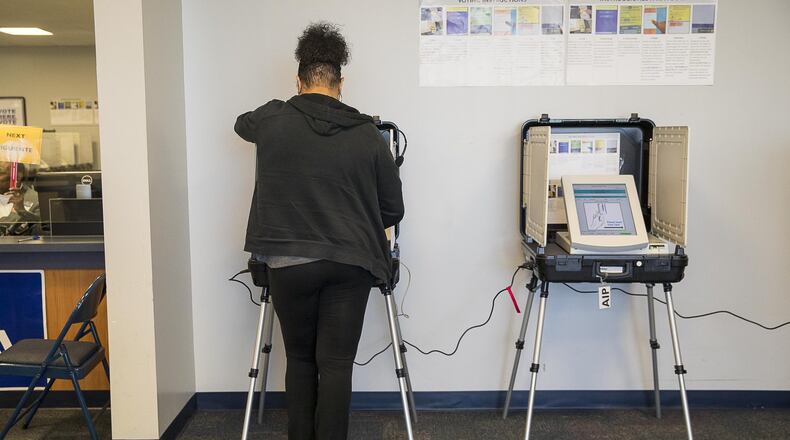An effort to restore the voter registrations of 98,000 inactive Georgia voters is shifting from the courts to the General Assembly.
Fair Fight Action, a voting rights group suing the state over elections practices, said Thursday that it will ask legislators to change the state's voter registration cancellation law rather than seek emergency relief from the Georgia Supreme Court.
Georgia election officials last month canceled the registrations of nearly 287,000 people because they've moved away or haven't participated in elections since 2012. About 98,000 of those cancellations targeted voters under the state's "use it or lose it law," which calls for the removal of registrations of voters who had no contact with election officials for several years.
A federal judge ruled against Fair Fight Action's effort to reinstate those registrations but noted his "serious concern" about how the state's registration cancellation law should be interpreted.
U.S. District Judge Steve Jones wrote that the plaintiffs could ask the Georgia Supreme Court to intervene, but Fair Fight Action said Thursday that it won't file new litigation at this time. The broader lawsuit over alleged problems with Georgia's elections will continue in federal court.
“We will continue to fight so that no Georgian loses their right to vote simply because they have made the choice not to vote in recent elections,” Fair Fight Action CEO Lauren Groh-Wargo said.
The dispute focuses on a state law passed last year that lengthened the time before voters could be considered “inactive” and later removed from election rolls. Fair Fight Action argued that the law should have covered voter registrations that had previously been declared inactive; attorneys for the state said the law wasn’t meant to be retroactively applied.
During last month’s voter registration cancellation process, voters were considered “inactive” after three years in which they failed to participate in elections, contact election officials, respond to election officials’ mail or update their registrations. Then their registrations were voided after they missed the next two general elections.
The change in state law last year lengthened the period before voters become “inactive” from three years to five years.
The 287,000 cancellations represented about 4% of the state’s 7 million voters.
About the Author
Keep Reading
The Latest
Featured




